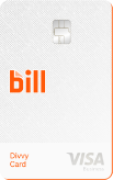The content on this page is accurate as of the posting date; however, some of the offers mentioned may have expired.

Creative financing alternatives: a win-win for both patient and practitioner
It used to be that if you wanted to straighten your nose or whiten your teeth, you had to come up with cold hard cash on your own or live with what God gave you.
After all, elective surgery is not covered by insurance in most cases. But thanks to some innovative programs from credit cards providers, healthcare professionals from cosmetic surgeons to fertility specialists are now able to offer their patients an alternative way to pay for elective surgery by participating in credit financing programs.
What's the upside? Plenty. Being able to offer your patients an additional payment plan for the treatment they want can increase the number of procedures you perform, resulting in increased revenue and enabling you to stand out from your competitors.
Using specialty-financing programs can also be an effective marketing tool to reach a wider patient base and help you grow your small healthcare business. Quite often, patients who receive an initial consultation do not return for services because they simply can't afford to pay for it up front. Rather than lose such business, specialty financing allows you to provide your client with the means to move forward with the procedure while they are most interested in doing so. Providing a quick and easy finance option is just the type of tool that is likely to attract many of these people to take the plunge and do business with your practice.
Overall, financing is available for all types of elective procedures that are not covered by insurance, including fertility treatments, laser refractive (vision correction) surgery, cosmetic surgery and dentistry services ranging from orthodontics to laser teeth whitening treatments.
Where to Go for Help
Capital One might be an option. The card provider is one of the leading financing companies working with small businesses in the healthcare professions. In fact, the financing program offered by Capital One is endorsed by the American Association of Orthodontists. Allowing the healthcare provider to pass on financing options to their patients is one way credit card companies facilitate small business growth.
GE Capital Consumer Card Company is another option. It offers a program called CareCredit - one of the largest in North America to finance healthcare services like plastic surgery. GE agrees to pay the doctor, sometimes as quickly as two days after services are rendered, and patients can apply on-line, by phone or by fax.
In June, 2004, Orlando, Fla.-based LocateADoc.com brought financing availability to their 500,000 monthly visitors using CareCredit. Prospective patients are now able to apply for a line of credit for healthcare procedures and treatment online. Users fill out an application and receive a credit decision in seconds. Applications can even be processed before a doctor is chosen.
"It just makes it even easier for patients to access convenient, low monthly payment plans," says Michael A. Testa, president of CareCredit. The company is currently at work in more than 40,000 healthcare offices and has helped over two million patients get treatment.
Like Capital One and GE Capital, most lenders do not charge a fee to enroll in the program. Small business owners simply register with the company and they provide you with application forms and information for your patients to submit. Once the patient is approved for a line of credit, you can get right to work.
Here's a snapshot of the benefits you and your patients can expect with consumer care financing programs:
Benefits to Your Practice
- No fees to enroll in the program
- Provider gets paid up front - no waiting for patients to make payments to you
- No additional paperwork for your billing staff to handle
- Increased patient satisfaction by allowing them to finance treatment
- Increased revenue for your healthcare practice
Benefits to Your Patients
- Quick and simple application approval process
- Patients make monthly payments directly to the lender for the services they want
- No initial down payment
- Low fixed interest rates from 5.9 percent to 13.9 percent
- Repayment plans up to 60 months
- No pre-payment penalties
Know the Risks
Although using consumer financing programs can enhance your small business healthcare practice, keep in mind that there are risks involved for the practitioner as well as the patient.
Most healthcare providers accept regular credit cards as a form of payment. However, there are companies that specialize in financing elective surgeries and some of those companies don't always tell you what's in the fine print. Generally, lenders will work out a program with the provider where they share the risk. The provider gives a 4- to 10-percent discount compared to what the patient was charged and the lender takes the responsibility of collecting payment.
Be forewarned, interest rates may start out low but if your patient starts to make late payments, the rates can go as high as 28 percent. If this does occur, the healthcare provider does not reap the benefits of these additional fees - the lender keeps the extra profit. And if the patient backs out on paying their credit debt, quite often the doctor loses money as well.
Bottom line, there are risks for the service provider, given that what you are ultimately offering is an unsecured loan for a procedure. If a patient does renege on paying, you can be left holding the bag, especially considering that you aren't going to be able to take out their breast implants or take back their newly corrected vision.
But risks aside, consumer financing programs are a boon to small businesses looking to keep customers coming back for more goods and services. After all, helping customers to pay their bill isn't a luxury in today's competitive environment - it's a necessity.





